If you’ve decided that you want to become a Supporting Artiste and enter the world of film and TV as an ‘extra’, here’s some useful advice for you. Firstly I’m going to look at some the information you need to have to hand, then I’ll get into the process of choosing agencies, followed by the sign-up process itself and finally a brief look at what happens next.
Just a quick note before moving on that I’m writing this post with experience of the UK industry, so a lot of it probably doesn’t apply outside of the UK.
Information you’ll need
If you want to be on top of your application process, here are some key things you’ll need to have ready.
Great quality photos: many agencies will want you to upload at least one high-quality photo of yourself during the application process. For most productions it will be the photos that get you the work, so they need to show you off as much as possible. This doesn’t necessarily mean you need to get them taken professionally, but you need to follow the guidance given.
In most cases you will need a head and shoulders photo, full length photo and perhaps a three-quarter length photo, all of which will need to be taken against a plain light background with reasonably good lighting, no big shadows and nothing else in the picture other than you. Selfies won’t work. If you can get someone to take them for you, that would really help. There should be a single background, so for full-length photos you might want to invest in a decent white photographic background.
Many agencies will let you upload a number of photos, showing you in different costumes, such as ‘business suit’, ‘casual’, ‘posh dinner’, ‘scruffy’ etc. You might just want to upload the key images first and wait until you get some applications approved before doing the rest. Some agencies include a professional photoshoot as part of your registration with them but even those ones will encourage you to upload photos of you in different costumes, too.
One other tip: if you’re considering a change of hairstyle or any other significant change to your look, do it before getting your photos done. Your profile on the agencies’ sites will need to be kept up to date.Personal details: you’ll need the usual address and contact details, date of birth etc. Some agencies also ask you for next of kin / emergency contact information. When providing your contact details, bear in mind that the industry can be very fast moving – you may only get a few minutes to respond to an availability request – so make sure you are highly contactable using those details.
Work status and payment information: in the UK your status as an SA puts a lot of the responsibility on you. You’re employed “through” your agency, not by them. You’re perhaps closer to self-employed in terms of tax anyway, because you’re responsible for paying your own tax & NI directly to HMRC, as well as keeping all relevant paperwork and working out your profits and how much you owe. You should consult a tax expert or official website if you’re unsure, although most agencies make the position quite clear. When signing up, expect to provide bank details and your NI number, plus proof of being allowed to work in the UK, such as a passport.
Disclosure certificate: a recently new addition to the process, you’ll need to obtain a DBS basic disclosure certificate and provide details of it, ahead of working on most productions. This is at your expense and needs to be renewed regualrly. For England & Scotland it’s Disclosure Scotland you need to go to (at the time of writing). Technically it’s supposed to be for productions involving children but as they could be helping out, behind the scenes etc most productions and therefore the agencies will insist on it.
Measurements: you will need to provide a number of accurate measurements, for two main reasons: 1) to help agencies with decisions on who to suggest to productions and 2) to help productions get costumes ready in the right size for you. For some larger productions you may be invited to a fitting session – usually this is paid. The attributes required by each agency vary but the following are quite common: height, chest size, waist size, inside leg, head circumfrence and collar size.
Skills: many of the agencies sign-up and profile forms will give you the ability to list particular skills that you have. Some productions need people that already know how to do a particular thing, so whether it’s being a chef, juggler, cocktail bartender, sportsperson or multi-lingual speaker, having these skills to a proficient or even professional level might stand you in good stead. Tied in with this, you might be asked about your fitness level.
Special costumes: some agencies will give you the ability to list particular costumes you can supply yourself, such as an emergency service uniform or full black tie dinner suit. In some cases you are paid by a production for providing these yourself; many SAs would say it’s worth the investment to have a dinner suit / tuxedo / cocktail dress type of arrangement available.
Driving details: it’s worth specifying if you can drive and have access to a car. Some jobs are ‘drivers only’ due to their location being impractical for public transport access; also occasionally you might be asked to provide a vehicle for the shoot – a chance for it to upstage you on screen!
What are you prepared to do? Yes, you might be asked some questions about what you are willing to do on camera. In some cases you’re asked about the level of nudity you’re prepared to have; sometimes there may be one or two further questions in this area. Most productions do not get into this area so you’re not at a huge disadvantage by saying ‘no’ in this area but if you are willing to do some of the things being asked about it may put you in a good position for those types of jobs.
Choosing agencies
Once you’ve got all that information to hand, you’ll be in pretty good shape to start applying to agencies. But how do you choose? Firstly, in case you were wondering, as a Supporting Artiste / ‘extra’ in most situations you can – and probably should – be signed up with several agencies, especially if you are aiming to do it as much as possible.
There are a lot of agencies out there, some with decades of experience in the business and some which have just started up. Some things you might want to consider:
Recommendations and reviews: are you following in the footsteps of a friend or family member who’s already a background artiste? If so, they will probably have some good recommendations for you. If not, read forums and blogs, check out the agency websites and look at their social media channels for comments and reviews.
Fees and commissions: most agencies charge a registration fee (aka a ‘book fee’ because it puts you on their books) for a specified period of time, such as 12 or 18 months. Some agencies take this fee from the payment for your first job with them, others charge it upfront. I prefer the first type of agency because they have to get you some work in order to earn their registration fee. A standard day’s work as an SA with no overtime or additional payments (more about those in a future post) should usually pay it off and leave you with a few quid to spare. If you are going with well-known, well-reviewed agencies and have put as much as you can into your photos and profiles, you are likely to get several offers from them over the course of each registration period. If you are fortunate enough to get lots of work, the one day every 12-18 months where you are effectively working to pay off your registration fee isn’t a big deal.
Then there is the commission rate which is payable from every job. Typically this is between 15-20%. This is subject to VAT, so if you’re not VAT registered a 15% listed fee effectively becomes 18% of your earnings taken by the agency. All good agencies are upfront about it; it’s not their fault after all! If you are VAT registered perhaps by way of other work that you do, find out whether you can put your SA work through your VAT return and reclaim that extra amount.
Location: a number of SA agencies focus on productions in a particular geographic area, so they expect you to live in or at least be willing to travel to anywhere in that area, usually early in the morning. Some of the agencies even have different books for different areas, so make sure you sign up to the right one for you. I’ve previously emphasised how important timekeeping and reliability are, so think realistically about whether you would want to be travelling to anywhere in that whole region at strong coffee o’clock.
Types of production: many agencies seem to lean towards particular types of productions, for example feature films, TV series, continuing drama, commercials etc. If you are planning to do this work full time then you will want to go for as much work as possible of whatever type, but if you are balancing being an SA with other commitments you may want to focus on TV – where jobs may only be as little as 1-2 days – rather than film where you might be required for several weeks in one go, full-time.
The sign-up process
So let’s say you’ve decided on a few agencies to apply to. My advice is to get all the information together, get a coffee and give yourself a few hours in front of a computer in a quiet place. The online application process is usually quite long for each agency, but it gives them all the information they need to consider you for being on their books.
Go through each agency’s sign up process in turn, following the instructions to the letter. In most cases, this is via a page-by-page online form (check for the green padlock & other security measures, folks); some agencies just want your details via email. Accuracy and honesty are really important, so take your time to get the details right. The photos and measurements are really important; pay particular attention to each agency’s instructions for both.
What happens next
The next stage for each agency depends on how it works, which can vary massively across agencies. Examples include:
Agencies which consider all applications and only have those who are accepted on their books: after a while you should either be accepted, rejected or asked for more information. Many of these agencies invite you to a registration session which might include a photoshoot, but you should be prepared to wait as there may only be one or two intakes per year.
Online-only agencies with no registration sessions or professional photoshoots if you are accepted: in other words they’re relying fully on what you’ve submitted in your application. Some might only list and send job offers to those who they accept but many will allow you to have a basic profile on their system anyway (including while your full application is being considered) and this non-full profile is available to them in case of a job which isn’t suitable for anyone fully on their books or if they need hundreds of people on one particular day and they’re having a hard time filling it with full members. Even the online agencies can take some time because of the need to manually review anything from just photos to the full application.
You should aim to get registered with at least some agencies of the first type.
Your thoughts
Any other pointers for first timers before or during their application? Please comment.




